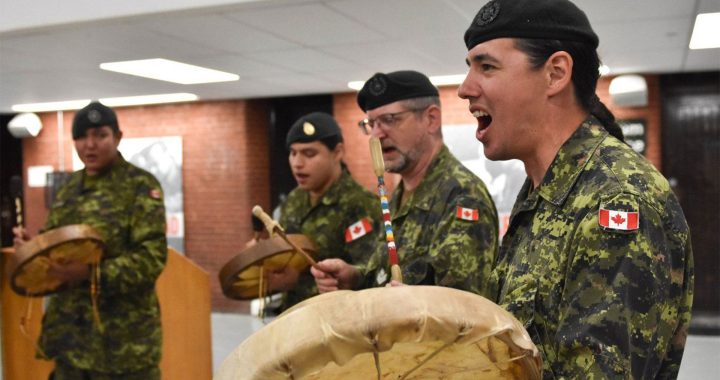Trina Roache
APTN National News
Mi’kmaw chiefs hope a newly discovered document breathes new life into a four-year legal battle with Ottawa over social assistance.
“It changes everything. We were right all this time,” said Eskasoni Chief Leroy Denny. “I’m discouraged the government didn’t produce this document.”
The Harper government wanted to force bands in the Maritimes to strictly comply with provincial welfare policies.
The Mi’kmaq fought back and took Ottawa to court. The Chiefs won at the lower level, but Ottawa won at the Federal Court of Appeal in early 2015.
A few months later, former Aboriginal Affairs Minister Bernard Valcourt sent a letter to the chiefs saying the changes will come into force on April 2016. The government also immediately dropped a study into the impacts of changing how social assistance is handled on reserve.
Another blow came for the Mi’kmaq came this fall when the Supreme Court of Canada said it wouldn’t hear the case.
Ottawa had argued that it wasn’t changing the policy, but just enforcing the one that existed, pointing to a 1964 directive from the Treasury Board to adopt provincial rules.
What was missing was a policy statement called Circular 107 issued four days after the Treasury Board’s decision. Its purpose was to explain how the directive should be carried out.
“It may not be possible to adopt all aspects of provincial policy,” reads the Circular. Written to the Indian Commissioner for B.C. and Regional Supervisors, the letter goes on to advise that creating draft regulations for welfare on reserve will “involve examination and adaptation of provincial regulations to our own particular situation.”
Mi’kmaq lawyer Naiomi Metallic says government produced well over one hundred documents in court. But not this one.
“And we think it was such a key relevant document and to not produce it,” said Metallic. “It changes the whole flavour of the case.”
“The government needs to make this right,” said Denny. “Collectively, the Maritime First Nations have spent a lot of time and money to bring this case to court when it’s now clear that Canada had options other than forcing our people into greater poverty.”
Denny said the Harper government just wanted to save money. Bands will get 30 per cent less funding under the new policy.
“They’re picking on the poorest of the poor, our people are struggling,” said Denny. “We already have a hard time making ends meet.”
Welfare works differently on reserve. Bands use some of the money to pay for programs and social housing.
The chiefs argued that government had allowed that flexibility for the last five decades.
Metallic points to the testimony of a retired Aboriginal Affairs official who had helped develop social assistance manuals in the 1990’s.
“She said, our marching orders were always to look at provincial standards but to be flexible and adapt them to circumstances on the reserve.”
In the early 2000’s, government worked with bands in the Maritimes to produce a Mi’kmaq/Maliseet policy. That sat on the shelf under the Harper government.
“We said the practice proves the policy,” said Metallic.
Now they have the proof.
A researcher found the 1964 policy statement in the National Archives and brought it to Metallic’s attention just recently.
She had never seen it. Metallic said it refutes Ottawa’s claim that it was only enforcing the policy without consulting the Mi’kmaq.
“But we know what the policy was and what the Harper government was proposing to do was a clear change from that,” said Metallic. “They denied that, arguing this has always been it, we just haven’t been in compliance. But this just throws that out the window.”
The Mi’kmaq came to the end of their legal options in October after the Supreme Court of Canada said it wouldn’t hear the case.
But for Metallic, this policy document that’s come to light is a game changer.
“We think the reasoning in the Federal Court of Appeal doesn’t stand up anymore because of having found this circular,” said Metallic. “I firmly believe that.”
She’s already sent letters to government lawyers. Both parties can consent to reverse the decision or set the order aside.
“Given the commitments the new Liberal government made to work with us in partnerships, they could say, fine, let’s put that all behind us,” said Metallic.
The chiefs have sent letters to both the Justice and Indigenous Affairs Ministers.
And they’ll be raising the issue at the Assembly of First Nations meeting next week in Gatineau, Que.
Denny said Carolyn Bennett will be at the AFN assembly and has agreed to meet with the Mi’kmaw chiefs.
“Let’s talk solutions,” said Denny. “The Harper government just didn’t give us that opportunity.”
In an email response to APTN, Indigenous Affairs (INAC) wrote that “Justice Canada has been made aware of the document and is reviewing it, in the context of the decisions of the Federal Court of Appeal and the Supreme Court of Canada.”
At this point, the welfare policy changes are going ahead.
“The Government has maintained a constructive dialogue with Maritime First Nations throughout the court process,” said the emailed statement. “And will continue to do as we work toward an implementation timeline.”
@trinaroache










